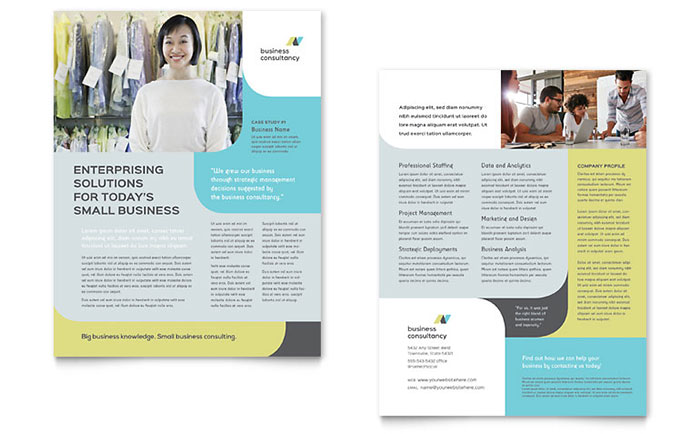
You can work remotely as an independent consultant by choosing a niche and then offering your services. You can market yourself as an expert consultant for any type of business, large or small, or even in a single field. Although there are many niches available, you need to have an extensive knowledge of all areas to succeed. Aaron and Val Giesler, experts in content and Jon Loomer, an expert in Facebook Ads are just two examples of highly successful consultants. These individuals are trusted experts on their topic and are often clients of high-profile companies.
Working from home as a consultant
Consultants who work remotely may find it appealing to work as consultants. However, there are some disadvantages associated with working from home. Consultants who are always away from their office are less likely to be promoted. Managers are more likely to promote consultants who spend their time in the office or at client sites. Consultants who only work from home are more likely to miss learning and networking opportunities.
Many consultants working from home require a bachelor's in a relevant field. Consultants may be required to have a bachelor’s degree in business administration, accounting, and marketing by large corporations. Some employers may even require a master's degree. A good computer and fast Internet connection are essential for work-from-home consultants.

Your niche as a consultant
If you are looking to make a living consulting, it is essential that you find your niche. Many career advisors suggest you look across the board, but it's a wise move to focus your skills and narrow your industry to a specific niche. Niche consulting businesses tend to have less competition than general consultancy firms and will be able to charge higher fees.
When it comes to choosing a niche, you need to decide what your strengths are outside your normal 9-to-5 focus. You might be an expert in medical sales or have a passion about starting your own side business. Additionally, you will need to be self motivated and able establish boundaries.
Potential earning potential as a consultant
A consulting career is a great way to earn high profits. As a consultant, you choose your clients and projects, which means you have full control over your schedule and income. It also comes with low operating costs, which makes it very appealing to many people. This career has a downside: there are many consultants in the field and it can be hard to find steady clients.
Consulting rates depend on the value of what you deliver to your client. It is not always easy to figure out how much you should charge. You'll need to analyze your client's needs and budget to determine a rate. The amount you charge depends upon whether you work for small or large firms. But independent consultants often earn more that their corporate counterparts.

Consultants get paid
Rates are an important aspect of consulting. For projects lasting less than one month, you might charge a flat fee. But if your project is more involved, you may want to consider charging hourly rates. This can allow you to get paid faster and cover your costs. This will enable you to see exactly how many hours worked. This is crucial when creating invoices.
Consultants can earn money by sharing their experience with clients and paying employers. This is a great way to get your own business up and running, but be aware that working as a consultant comes with more tax responsibilities than being an employee. You will be required to pay taxes on your income, which can range from 10% up to 37%, as well as estimated quarterly taxes.
FAQ
What skills is required to consult?
As a consultant, you should have both strong interpersonal skills and analytical skills. This is because you could be asked questions or not know what you are doing. It is important to learn how to quickly solve problems and manage people.
A strong communication skill is also necessary. Clients expect a response within 24 hours. If they don’t hear back, they assume that you aren’t interested. It is crucial that you keep them up to date and make sure they know what's happening.
How did modern consultancy become possible?
The first consultants were accountants that helped companies manage finances. Their skills in managing financial information led to them being called "accounting consultant". They soon expanded their roles into other areas like human resources management.
The French word for advice, "consultant", was originally used to describe someone who could advise on the management of an organization. Many business owners use the term "consultant" to describe any professional advisor.
What is the average price you should charge for a consulting job?
It depends on your offering. You don't have to charge anything if you provide services free of charge. If you sell products or services, however, you must set prices based upon value.
If you offer low-quality services then you don’t have anything for sale. So why would anyone pay any money for your services.
If you are providing high-quality services, then you could ask for a higher price because people recognize the value you provide. It is possible to offer discounts to clients who order multiple packages.
Why would a company hire consultants?
A consultant offers expert advice on improving your business performance. They don't sell products.
A consultant is a person who helps companies make better choices by providing sound analysis, and making recommendations for improvement.
Consulting often works closely with senior management teams in order to help them understand the steps they must take to succeed.
They provide coaching and leadership training for employees to enable them to achieve their peak performance.
They may be able to advise businesses on ways to cut costs, improve efficiency, and streamline processes.
What can I expect of my consultant?
Once you select your consultant, you should expect to hear back from them within a few days. They will often ask about your company's mission, goals and products. Next, they'll provide a proposal describing the scope and estimated time frame, fees, deliverables or milestones, as well as an estimate of costs.
If all goes well, the parties will then negotiate a written agreement. The type of relationship between the parties (e.g., employee-employer, independent contractor-employer) will affect the terms of any contract.
If all goes according to plan, the consultant will begin working immediately. The consultant will have full access to your files and resources. You'll also have access to their skills and knowledge.
Don't think that consultants are experts. To become an expert in any field you consult, it takes practice and effort. So, don't expect your consultant to know everything about your business.
What are the types of contracts available to consultants?
When consultants are hired, they sign standard employment agreements. These agreements detail the length of the consultant's contract with the client, the amount he/she is paid, and other important details.
Contracts can also indicate the areas of expertise that the consultant will concentrate on and the compensation they will receive. For example, the agreement may say that the consultant will provide training sessions, workshops, webinars, seminars, etc.
Sometimes, the consultant just agrees to complete certain tasks within a defined timeframe.
In addition to standard employment agreements, many consultants also sign independent contractor agreements. These agreements allow the consultant not only to work for himself/herself but also provide payment.
Statistics
- According to IBISWorld, revenues in the consulting industry will exceed $261 billion in 2020. (nerdwallet.com)
- According to statistics from the ONS, the UK has around 300,000 consultants, of which around 63,000 professionals work as management consultants. (consultancy.uk)
- "From there, I told them my rates were going up 25%, this is the new hourly rate, and every single one of them said 'done, fine.' (nerdwallet.com)
- WHY choose me: Why your ideal client should choose you (ex: 10 years of experience and 6-week program has helped over 20 clients boost their sales by an average of 33% in 6 months). (consultingsuccess.com)
- So, if you help your clients increase their sales by 33%, then use a word like “revolution” instead of “increase.” (consultingsuccess.com)
External Links
How To
How Do I Find A Good Consultant?
The first step in finding a good consultant is understanding what you want from your consultant. Are you looking for them to improve the performance of your website? You want them to optimize the site for search engines to make it rank higher. Maybe you want someone to check on your current hosting provider and tell you if it is in need of improvement. You need to know what kind of services you want, and then you can begin looking at other companies. While there are many consultants that claim to be able provide these services for you, not all of them will. So how do you go about choosing one? Here are some things to consider when picking a consultant:
-
Get referrals. This is the best way to select a consultant. It's not a good idea to hire someone you haven't heard of, as you will likely end up paying too much. You don't want to work alongside someone whose reputation hasn't been established. It's great if you get recommendations from people you trust. You might also be able to find reviews online even if there are no referrals. Look for testimonials and case studies where clients have used your service.
-
Ask around. Many people don’t know that they could gain from consulting. They think that since they're currently doing fine, they don't need to make changes. This is often incorrect. Even if you are seeing great results, it is likely that you have not been keeping up to date with technology and trends. If you continue to rely on outdated methods, your business will be unable to grow. It's always worth asking around to see if anyone knows of a good consultant.
-
Check their qualifications. You don't need to worry about whether they are building a website or an eCommerce store worth millions. You must ensure they have the necessary skills and qualifications to carry out the tasks.
-
Find out what type of projects they are skilled in. It is a common misconception that everyone can manage everything. Some areas require specific education or training. A developer who is a specialist in Drupal would not be able to help you build a WordPress theme. The same goes for graphic design, programming languages, etc. Ask them what types of projects they are most familiar with.
-
Know what they charge. As we said, you don't want to pay too much for a consultant. You also don't want too much. Consultants come in many sizes and shapes. While some consultants charge an hourly rate, others bill per project. It's cheaper to know upfront what you are paying than later.
-
Find out what they offer. Do they offer free consultations? Are they willing to give advice about how to set up your own system or provide other assistance? Can they guarantee your site will rank higher if you work with them? If you don’t like the information you receive during your consultation, you can cancel it without penalty.
-
Find out if the company offers discounts for several months or years. Many consultants offer discounts for longer periods. Even though you do not necessarily have to commit to a whole year of service, you might still be able to benefit from any specials they offer.